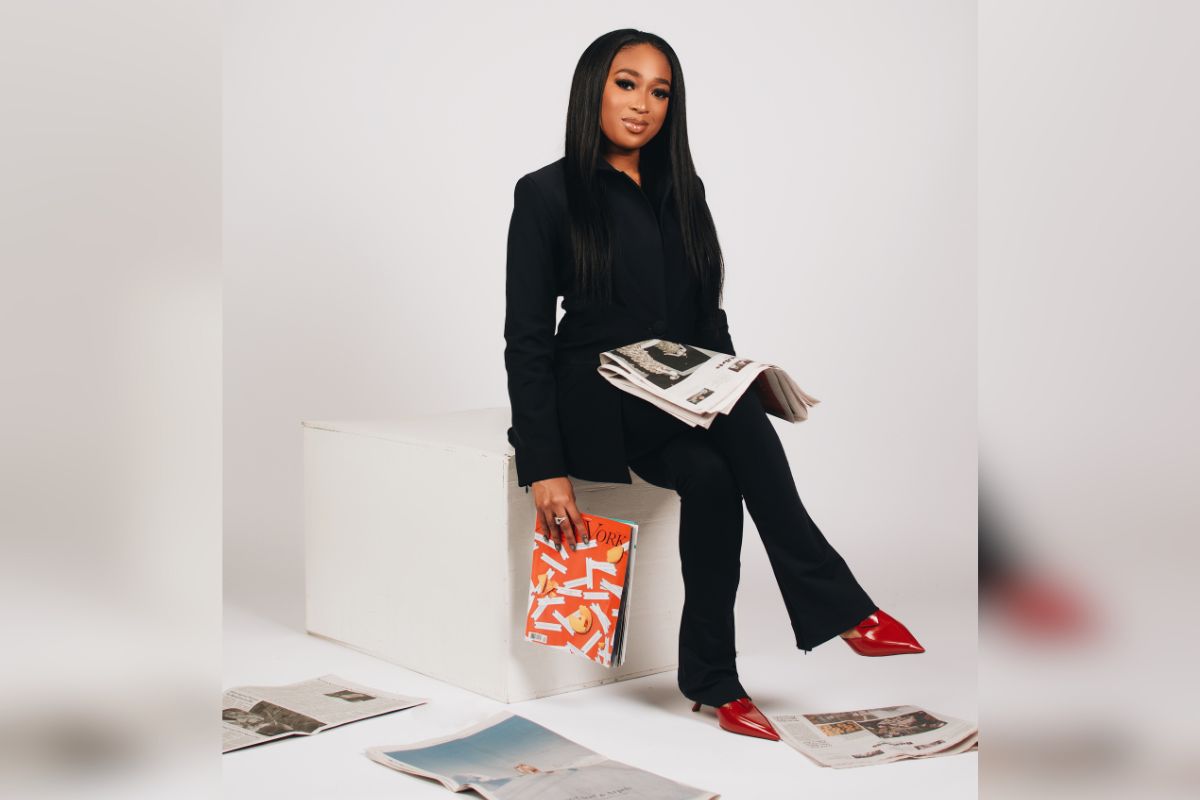A vast majority of Americans receive their news digitally nowadays, according to the Pew Research Center, and only five percent prefer print media over digital. But Kelsey Russell, a student in the College’s Sociology and Education program, is aiming to change that — hoping to “bring back the newspaper” by inspiring her Gen Z peers and growing TikTok audience to return to print media and regain some agency instead of relying on algorithms to get informed.
“I spread the word on TikTok because it’s important to meet young people where they’re at,” explains Russell, whose viral content has landed her on The Drew Barrymore Show and Huffington Post. “It sounds dramatic but reading print improved my quality of life. I’m more informed, less anxious and more curious than ever…Sharing what I learn through TikTok helps me get my message across to my peers.”
@kelscruss stop being a cyborg, it's lame #fyp #printmedia ♬ original sound - kelsey russell🗞️
Russell’s perspective resonates when the immediacy of online news and the rise of artificial intelligence makes staying informed particularly fraught. Visual misinformation has officially permeated the culture more deeply and effectively than ever before, shaking the public’s trust in everything from our political leaders to the British royal family and more.
While Russell’s own turn to print media was inspired by her personal desire to be more informed, her TC classes from faculty like Basil Smikle (Ph.D. ’19) influence her TikTok videos by helping Russell highlight how media reflects and amplifies political rhetoric, not just facts.
“I'm able to use the lessons that they're teaching us, and apply them to the articles I'm reading and even give [those lessons] to a bigger audience, allowing [the viewers] to expand their thoughts,” Russell says.
But in addition to advocating for print as a means for media literacy, Russell sees the medium as a critical opportunity for younger citizens to find greater value in the world around them.
“When I consume news on my phone, I’m not just consuming the news. A text message is coming through, someone’s calling me,” says Russell. “I’ll see [an interesting article] mid-Instagram scroll, maybe click on it, and then go to the next post.” The endless churn of content, especially on social media, is overwhelming and can quickly lead to media overload, as described by the American Psychological Association. When she pivoted to print, Russell’s anxiety toward the news reduced significantly, despite the negativity bias present in digital and print news.
By setting aside time to read a physical paper, Russell was able to take the time to process what she was reading and how it made her feel. “I can say ‘Okay, I read that news article. It made me really sad. What can I do?’ Maybe I can go on a walk. Maybe I can go have a yummy snack. As silly as it sounds, it's easier to process your emotions when you read things on print because you're distracted from the thing that causes us the most anxiety, which is our phones,” says Russell.
@kelscruss the weekend calls for magazines!! #fyp #newyorkmagazine #medialiteracy #genz ♬ original sound - kelsey russell🗞️
Research suggests that reading print is associated with higher comprehension compared to reading from a screen, something that Russell echoes. “It’s made me more engaged and improved my listening skills which in turn makes me a more patient person,” she says.
Perhaps more importantly, reading print and organically encountering things that interest you sparks a truer form of curiosity, in Russell’s view. “Curiosity is the most natural human instinct in the world,” she says, and currently, “we have no agency over our curiosity on our phone” due to the prevalence of algorithmic-based search, “but when you read print you're able to lean back into that natural sense of curiosity.”
Looking toward the election, Russell is, of course, concerned about misinformation, “I'm more concerned about the fact that people are having less conversations in person about political issues. And when they do, it turns into something very divisive and volatile,” she says. The solution, as Russell sees it, is having more person-to-person conversations about these topics because it’s far easier to dispel misinformation and bias news sources when having in-person interactions.
Russell — who sees herself continuing scholarship beyond her master’s — also hopes that readers and voters start to ask the question “why?” more often. “Media literacy and informed decision making, both start with the question of, why? Why am I doing what I am doing?”
